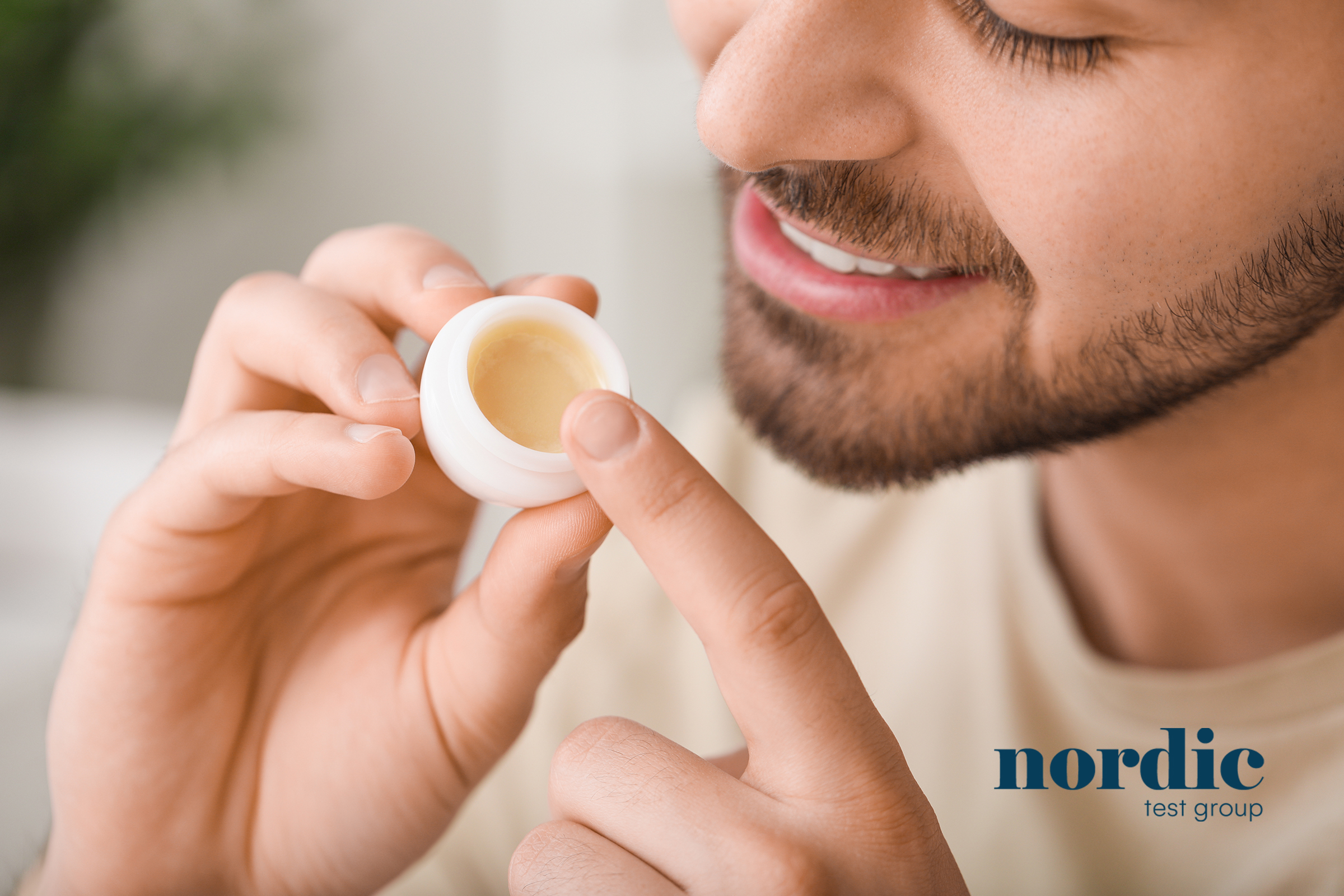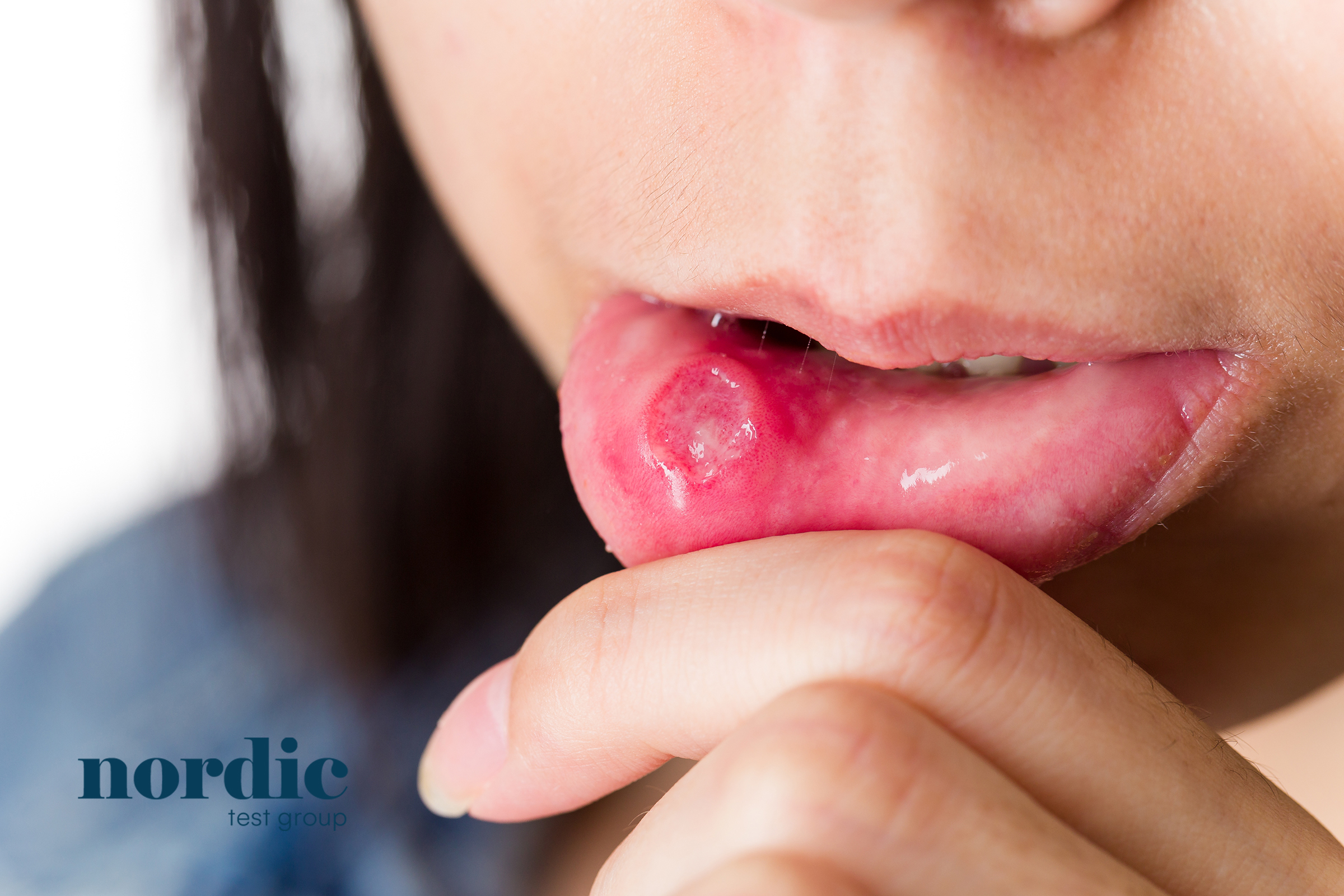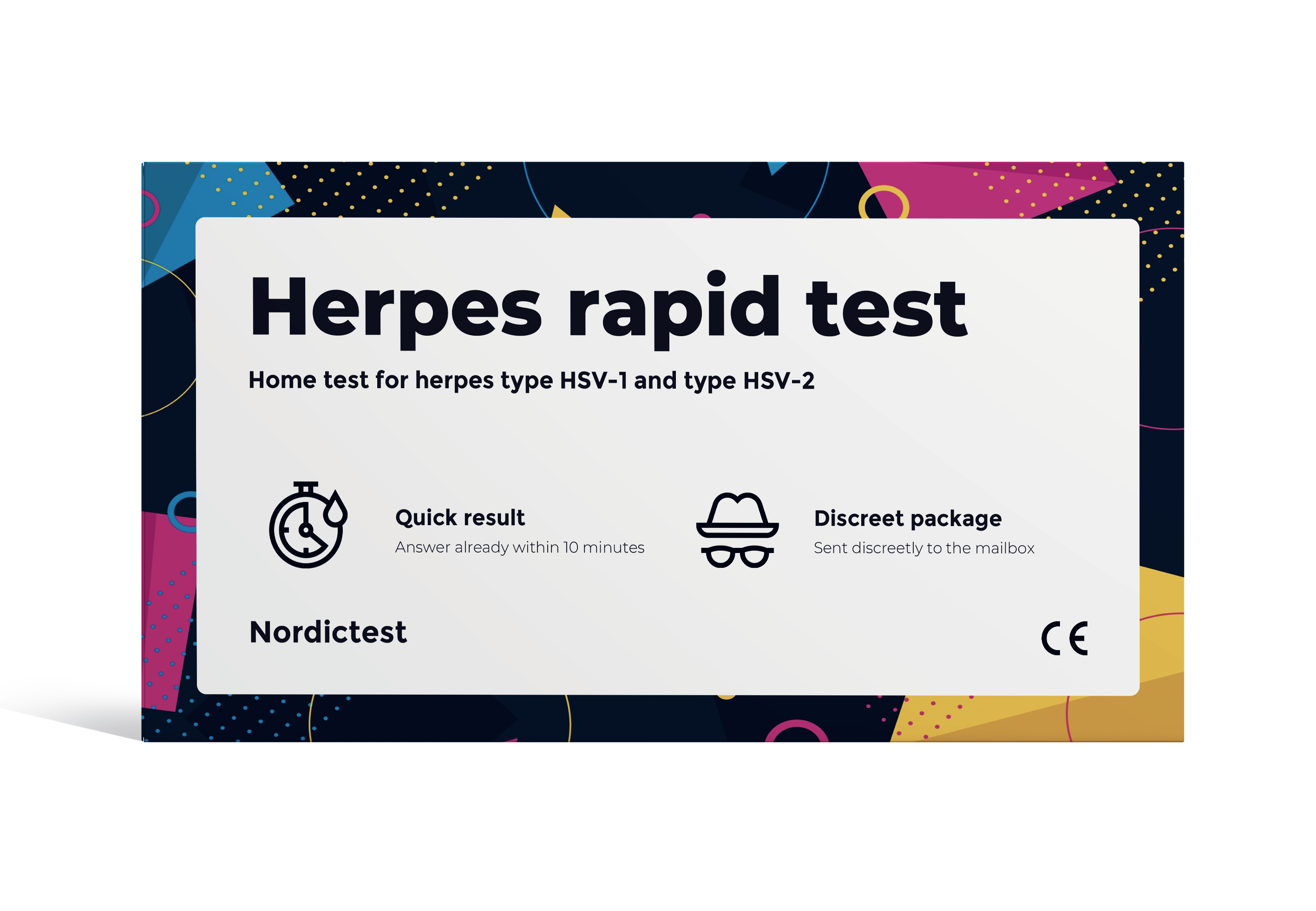Herpes in Children – Symptoms and Treatment
Published 2024-04-20 21:00 by Nordictest
We often view herpes infections as something that only affects adults. However, children can also get herpes, and as a parent, it's wise to be aware of this. Not only to take preventive measures but also to be able to provide the right treatment when needed.
Is it Herpes?
Of course, there are many other health issues that can cause symptoms similar to herpes infection. Children can have rashes around the mouth as well as on other parts of the body that are not herpes, even if they involve blisters and sores. A rapid herpes test can help determine whether it's herpes or not.
Essentially, it's a viral disease caused by the herpes simplex virus. It's the HSV-1 version that causes cold sores, which is most common in children.
Symptoms may include:
- Blisters – Small fluid-filled blisters around and in the mouth may be herpes. There may be one or several. This can be missed if the child doesn't complain of mouth pain. But if you notice that the child isn't eating as usual, it may be worth checking for blisters.
- Tingling and itching – Before blisters appear, tingling or itching may be felt around the lips or where the outbreak is imminent.
- Sores – When blisters burst, they form sores that will begin to heal. If the child picks at scabs, it can disrupt healing and even lead to scarring around the lips.
- Pain – There may be tenderness or pain in the area around blisters and sores, especially when the child eats, drinks, or talks.
- Swollen lips – Lips can swell due to inflamed sores. Pay attention to this and seek medical care for proper treatment of inflammation.
- Fever – Children with herpes may also have a fever, especially during the first herpes outbreak.
- Headaches and muscle aches – This is less common but can occur during the first herpes outbreak.
- Swollen lymph nodes – Lymph nodes around the neck and jaw may swell due to the infection.
- Irritation – Small children may become irritable and cry more due to the discomfort from blisters and sores.
It's important to know that cold sores aren't always herpes. Avoid self-diagnosis and visit a pediatrician to determine whether it's herpes before starting any treatment.
How should herpes in children be treated?
There is no cure for herpes, which can be tough to accept. So, the child will have to live with this for the rest of their life. Moreover, there is research indicating that a herpes infection doubles the risk of dementia. Hence, preventive measures are incredibly important.

But if your child has contracted herpes, you don't need to worry. After all, many people have lived long and healthy lives despite having herpes.
Some possible treatments may include:
Antiviral drugs – These may be prescribed to reduce the virus's activity and speed up healing of sores. However, it's important to start treatment with these drugs as soon as possible for them to be effective.
- Pain relief – Over-the-counter pain relievers can be used if blisters and sores are painful. These can also help if the child has a fever due to a herpes infection.
- Cream and ointment – Discomfort from blisters and sores can also be relieved with cream and ointment. There are varieties with anesthetics that help the child forget to scratch, promoting faster healing.
- Good hygiene – It's essential to keep the infected area clean and dry for better healing. This can also prevent spread. Be mindful when touching the sore yourself, and ensure the child has their own towel and doesn't share glasses or utensils with others.
- Hydration and good nutrition – It's also beneficial for the child to eat and drink well. Avoid dehydration and provide healthy food that can support the body's mechanisms for handling the infection. This is particularly important if it's difficult to eat and drink with painful blisters and sores.
Preventing Herpes in Children
Prevention is indeed the best approach, and there are several things to consider. You can teach your child many habits to behave more safely at preschool and school. The first step is to lay the groundwork for good hand hygiene.
Additionally, teach your child not to share food and drinks with others. The same goes for straws and bottles. If you're consistent with this among siblings at home, it will become second nature for the child.
Perhaps it's possible to talk to teachers and other parents about working together to reduce the risk of infection spread. An information evening about health could be a very nice initiative that could have positive consequences throughout the school year.

Avoid Direct Contact with Sores and Blisters
It's also important to avoid direct contact with blisters and sores. As a parent, you may forget this and accidentally touch one child's sore before touching another's. As a parent, you must also be diligent about hand hygiene, and when you are, your children will follow suit, making it a good investment in family health.
Consider Overall Family Health
One thing often overlooked when discussing herpes in children and adults is that much can be done to help the body heal on its own. When we have a strong immune system, the risk of infections decreases.
Therefore, learn more about how to strengthen your child's and your own immune system. Not just for cold seasons. Herpes is relevant year-round, so focus on good nutrition, happiness, and physical activity that lay the groundwork for a strong body less susceptible to infections like herpes.

